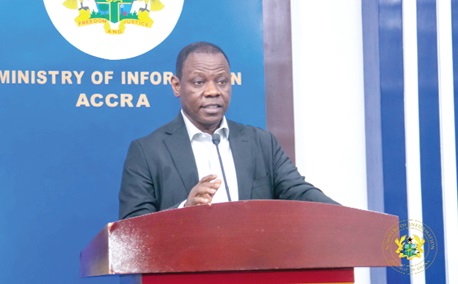
Infections in healthcare facilities claim many lives — Report
A WaterAid report has shed light on an alarming toll of human infections in healthcare facilities in Ghana.
Advertisement
The research found that these infections cost the country a staggering $1.57 billion annually, leading to thousands of preventable deaths. WaterAid is an international not-for-profit organisation operating in 22 countries and is dedicated to ensuring clean water, decent toilets and good hygiene for everyone, everywhere.
Sub-Saharan challenge
The report, released yesterday, revealed that at least half of the infections could be prevented with improved water, sanitation and hygiene (WASH) facilities in healthcare settings.
It estimated that at least 31,300 lives could be saved each year if the infections were to be halved, and Ghana could save a remarkable $72 million from its national budget. Ghana is one of seven African countries featured in the research, alongside Nigeria, Malawi, Ethiopia, Zambia, Uganda and Mali.
Collectively, the data shows that infections caused by a lack of basic WASH facilities are costing sub-Saharan Africa a staggering $8.4 billion annually.
Causes of infections
The report identified the absence of cleanliness and hygiene during medical care and recovery as major causes of infection transmissions and that surgical site infections, bloodstream infections and respiratory tract infections, including pneumonia, were among the most common healthcare-acquired infections.
The highest rates of infection, the report indicated, were found in intensive care units, neonatal wards and paediatric medical wards.
It noted that the economic impact of the infections was substantial, constituting an average of 1.98 per cent of Ghana's Gross Domestic Product (GDP), while treating illnesses caused by the infections consumed an average of 4.6 per cent of total health budgets annually.
WaterAid warned that these costs would only escalate as more infections become resistant to antibiotics. Currently, the report established that 45 per cent of healthcare facilities in Ghana lacked access to clean water, exacerbating the suffering caused by these preventable infections.
Immediate action
WaterAid emphasised the urgent need for increased investment in Ghana's healthcare system to ensure every facility had access to clean water, sanitation and hygiene services.
Reacting to the report, the Country Director of WaterAid Ghana, Ewurabena Yanyi-Akofur, emphasised the economic and health crisis posed by the absence of basic WASH facilities in healthcare settings.
She called for immediate action from the government, donors, multilateral development banks and the private sector to support the country's national WASH Infection Prevention Control action plans.
The release of the report precedes the UN High-Level Meeting on Antimicrobial Resistance (AMR) scheduled for September, underscoring the critical need for global action to combat future pandemics and antimicrobial resistance.
WaterAid's report highlights the crucial role of clean water, decent sanitation and good hygiene as the first line of defence against infections in healthcare settings. It underscored the urgent need for concerted efforts to ensure universal access to these essentials, particularly among vulnerable communities to prevent needless suffering and save lives.



